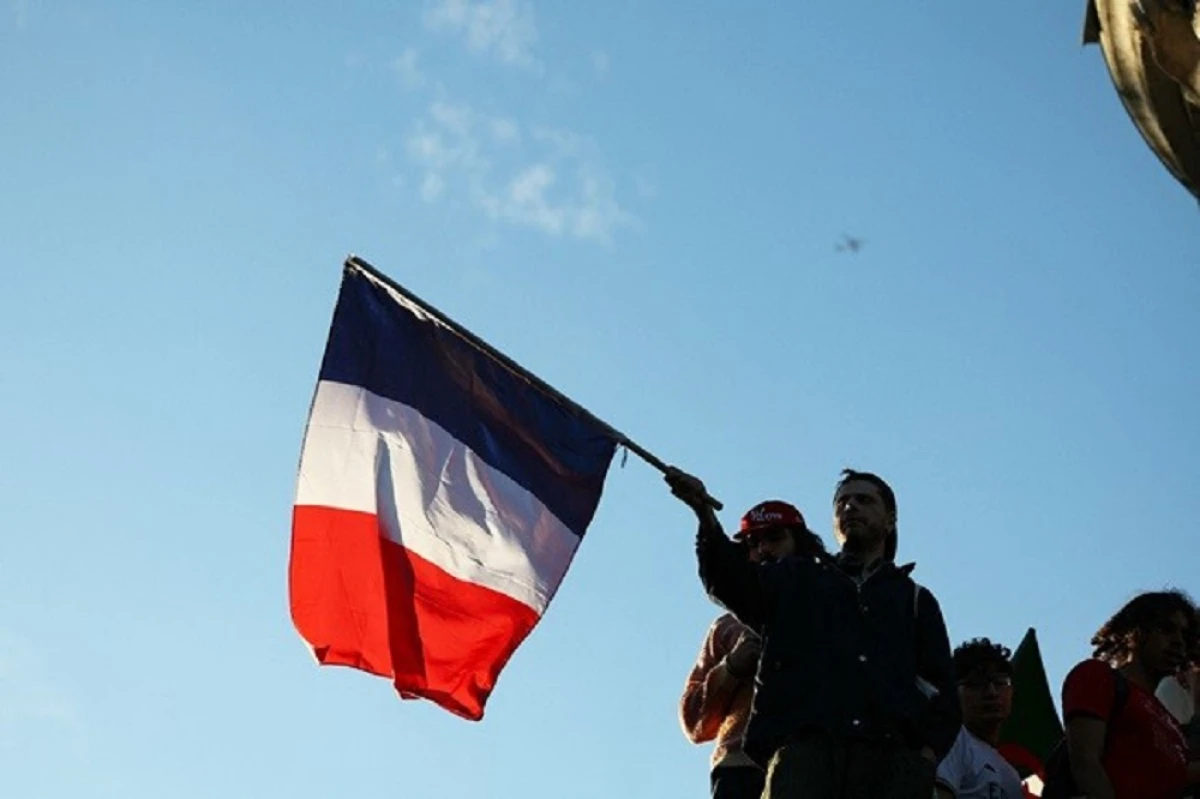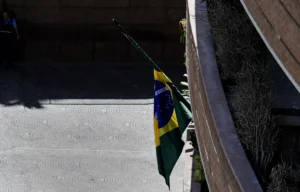
The left-wing New Popular Front (NFP) coalition has won the French parliamentary elections without an absolute majority, after a tight runoff with the alliance of President Emmanuel Macron and the far right fighting for second place, according to initial projections.
The NFP is expected to win between 172 and 215 of the 577 seats in the National Assembly (lower house), followed by the ruling alliance with between 150 and 180 and the far-right National Rally (RN) party and its allies with between 115 and 155, according to four different projections.
The results are a setback for far-right leader Marine Le Pen, who has failed in her attempt to secure an absolute majority, and who was projected to win a week ago, just as it seemed possible two days ago.
“It is a delayed victory”
French far-right leader Marine Le Pen regretted her party’s defeat in Sunday’s legislative elections, but recalled that it had doubled its support, which she said “lays the foundations for future victory.”
“This is a victory in the making,” said Le Pen, who did not call for the resignation of President Emmanuel Macron, despite “his failure.”
The left celebrates
“Our people have clearly rejected the worst possible scenario,” declared radical left leader Jean-Luc Mélenchon.for whom the NFP, which lacks an absolute majority, must “govern” but without “entering into negotiations” with Macron’s alliance.
Interior Minister Gérald Darmanin, who was re-elected as a member of parliament, responded that “no one can say who won the election.” and called on the ruling party to open up to the right-wing party The Republicans (LR), which would win between 57 and 67 seats.
The implicit pacts between the ruling party and the left-wing coalition, consisting of concentrating the vote on the candidate with the best chance of defeating RN in each constituency in the run-off, frustrated the far-right victory.
RN’s candidate for prime minister, Jordan Bardella, denounced an “alliance of dishonour” and assured that his party “embodies the only alternative” to “put France back on track”“Nothing will stop a people who have regained hope,” he added.
A government of his formation would have been the first far-right government in France since the liberation of Nazi Germany during World War II and a new one in the European Union, along with Italy, among others.
Artists, athletes, unions and organisations have mobilised to stop the far right, such as football star Kylian Mbappé, from coming to power.who had called for voting “on the good side.”
Visiting the Italian city of Trieste, Pope Francis warned this Sunday against “ideological and populist temptations”without mentioning any particular country.
In the event of “disturbances”, the French authorities announced the deployment of 30,000 police officers and gendarmes overnight, 5,000 of them in Paris.
Scenarios in France
A sign that the election was crucial, the turnout (59.71% at 5:00 pm) was the highest since 1981, and even former Socialist president François Hollande returned to politics and won a seat in parliament.
Macron had brought forward the legislative elections scheduled for 2027 to ask the French for a political “clarification” following the victory of RN in the European elections on June 9, in a “risky” decision, according to analysts.
The voters’ response was to redirect the three blocs that emerged from the 2022 elections – left, centre-right and far-right – with a new balance of power and without absolute majorities.
With less than three weeks to go until the start of the Paris Olympics, uncertainty looms over the composition of the next government. Prime Minister Gabriel Attal has already announced during the campaign that it will continue “as long as necessary.”
The French president will wait to know the “structure” of the new Assembly, which is due to elect its president on July 18, before deciding who he will call to form a government, his office announced, adding that it is studying the results.
During the campaign, several hypotheses emerged: a difficult coalition between part of the left and the ruling party, or even a technocratic government with parliamentary support in the second largest economy in the EU.
But a possible coalition seems unlikely given the cross-criticism between Mélenchon’s La France Insoumise (LFI, radical left), an important partner of the NFP, and Macron’s alliance, which accused the party of being “anti-parliamentary” and “anti-Semitic”.
“We’re going to have to behave like adults,” said Raphael Glucksmann, a symbol of the social-democratic wing of the NFP, who believes that “dialogue” is “a change of political culture” in a France that is not used to parliamentarism.
Both France’s allies and rivals on the international stage have been closely following the election, especially since Paris, a nuclear power, is one of the driving forces of the EU and one of Ukraine’s main supporters against Russia.
Source: https://www.noticiascaracol.com/mundo/la-izquierda-gano-elecciones-legislativas-en-francia-en-segunda-vuelta-cb20


